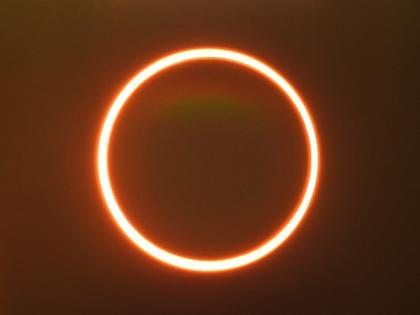Solar Eclipse 2020: Everything you need to know about the do's and dont's of Chandra Grahan
By Lokmat English Desk | Published: June 11, 2020 05:24 PM2020-06-11T17:24:05+5:302020-06-11T17:25:13+5:30
The annular solar eclipse is set for June 21 as it will start at 09:15 am (IST) and will ...

Solar Eclipse 2020: Everything you need to know about the do's and dont's of Chandra Grahan
The annular solar eclipse is set for June 21 as it will start at 09:15 am (IST) and will remain till 03:04 pm (IST) It is said that the eclipse will be in a way that Sun will be seen forming a 'ring of fire' in the sky. n 2020, India will witness the phenomenon from 09:15 am to 03:04 pm both IST. The full eclipse will begin from 10:17 am and will be visible until 2:02 pm. The maximum eclipse will occur at 12:10 pm.
The prime segment of the solar eclipse where only ring-like structure is visible ranges for around 11-12 minutes. The last time there was an annular solar eclipse, it was December 26, 2019. Before that the event occurred on September 1, 2016, and January 15, 2010. In India there are a lot of myths and superstitions associated with solar eclipses, and it is widely believed that during any type of eclipse, there are a few dos and don’ts which you must follow. Here are some of the widely followed beliefs and some medical facts as well.
Dos
People usually prefer staying indoors during the eclipse hours.
No food items are consumed during this time.
Add Tulsi leaves in your eatables and water to prevent any ill-effects of the Grahan. Taking a bath and changing into new clothes is advisable during the eclipse
Chanting of mantras dedicated to the Sun God is also followed by many households
Expectant mothers are especially advised to stay indoors and chant the Santana Gopala Mantra
Don’ts
Any auspicious task is avoided during the eclipse duration in several households.
An eclipse should not be viewed with one’s naked eye as it can damage the eye.
Skywatchers are advised to use binoculars, a telescope or an optical camera viewfinder with optimal filters to watch the eclipse. A normal-use binocular or telescope is a strict no-no.
Open in app